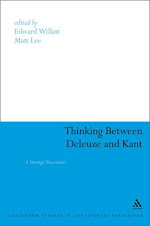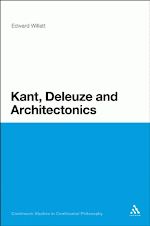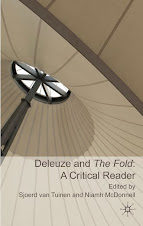Deleuze texts and interviews
-
- -
The ABC of Gilles Deleuze
An overview prepared by Professor Charles J. Stivale of interviews between Gilles Deleuze and Claire Parnet that were filmed by Pierre-André Boutang in 1988-1989.
-
-
'The Body, the Meat and the Spirit: Becoming Animal' by Gilles Deleuze
'Instead of formal correspondences, what Bacon's painting constitutes is a zone of the indiscernible, of the undecidable, between man and animal. Man becomes animal, but he does not become so without the animal simultaneously becoming spirit, the spirit of man, the physical spirit of man presented in the mirror as Eumenides or fate. ...'
-
-
'On Human Rights' by Gilles Deleuze
'The reverence that people display toward human rights - it almost makes one want to defend horrible, terrible positions. It is so much a part of the softheaded thinking that marks the shabby period we were talking about. It's pure abstraction. Human rights, after all, what does that mean? It's pure abstraction, it's empty. It's exactly what we were talking about before about desire, or at least what I was trying to get across about desire. Desire is not putting something up on a pedestal and saying, hey, I desire this. We don't desire liberty and so forth, for example; that doesn't mean anything. We find ourselves in situations. ...'
-
-
'Capitalism: A Very Special Delirium' by Deleuze and Guattari
-
-
'Postscript to Societies of Control' by Gilles Deleuze
'Foucault located the disciplinary societies in the eighteenth and nineteenth centuries; they reach their height at the outset of the twentieth. They initiate the organization of vast spaces of enclosure. The individual never ceases passing from one closed environment to another, each having its own laws: ...'
-
-
'Desire and Pleasure' by Gilles Deleuze
'Foucault had just published La Volonté de savoir, the introduction to a Histoire de la Sexualité which challenged the play of categories through which the struggles of sexual liberation reflected itself. The reception of the book, poorly understood, was contemporary with a sort of crisis in Foucault, already wholly bent to the task of bringing out of himself, and converting himself to, what would become the problematic of L'usage de plaisirs and the Souci de soi. ...'
-
-
Deleuze's Empiricism and Subjectivity
-
-
'Review of Jean Hyppolite's Logique et Existence' by Gilles Deleuze
-
-
'Control and Becoming' Gilles Deleuze in conversation with Antonio Negri
-
-
'November 28, 1947: How do you make yourself a body without organs?' by Deleuze and Guattari (from A Thousand Plateaus)
-
-
'Letter to a Harsh Critic' by Gilles Deleuze
-
-
'May 68 Did Not Take Place' by Gilles Deleuze and Felix Guattari
'In historical phenomena such as the revolution of 1789, the Commune, the revolution of 1917, there is always one part of the event that is irreducible to any social determinism, or to causal chains. Historians are not very fond of this point: they restore causality after the fact. Yet the event itself is a splitting off from, a breaking with causality; it is a bifurcation, a lawless deviation, an unstable condition that opens up a new field of the possible. ...'
-
-
-




